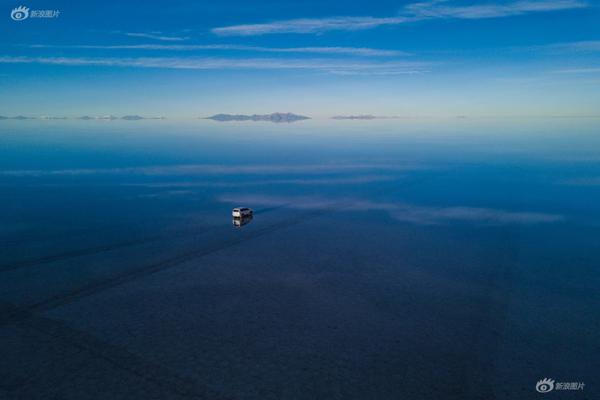Conflict Irresolution
Fifty years on, The Battle of Algiersstill unsettles Casbah Film / Igor Film
Casbah Film / Igor Film o
r
d
F
a
c
t
o
r
y
The Battle of Algierswas the sold-out opening-night attraction at the New York Film Festival in September of 1967. But Gillo Pontecorvo’s reconstruction of the pivotal showdown of Algeria’s 1954-1962 rebellion against French colonial rule only got a U.S. theatrical release in the tumultuous spring of 1968. It is a testament to the time’s confusions and Pontecorvo’s genius alike that liberals could embrace The Battle of Algiers for being rhapsodically affirmative—somebody else’s revolution is always a pleasure to cheer for—while radicals saw it as prescriptive.
If Kubrick’s 2001 was the movie that the counterculture’s trippier heads doted on, Pontecorvo’s was the one New Left politicos swore by. So did the Black Panthers, who used the movie’s recreation of the tactics adopted by the Algerian National Liberation Front (NLF) as both a recruiting tool and a training film. Even now, the movie’s artistic achievement is impossible to judge separately from your susceptibility to its agit-prop fervor. As Pauline Kael wrote in 1973, The Battle of Algiers is “probably the only film that has ever made middle-class audiences believe in the necessity of bombing innocent people—perhaps because Pontecorvo made it a tragic necessity.”
But back then, Americans and most Europeans couldn’t imagine themselves as a terror campaign’s targets. They still thought they were its ultimate judges. Besides, liberal audiences then were used to identifying with insurrectionists, not their oppressors. This preconception held fast through all sorts of postwar fables of national liberation, from Spartacus and Exodusto ahem, Is Paris Burning?—shot, ironically enough, at around the same time, and making similar use of pseudo-documentary locations to lionize the same Free French who resurfaced in Pontecorvo’s docudrama as Algeria’s Darth Vaders.
His movie was in a different league cinematically, but not that big a leap ideologically—or so it seemed. The scene where two FLN rebels, after running out of ammunition, plough their truck into a crowded sidewalk surely provokes more emotions today than the poetry of desperation Pontecorvo had in mind. After 9/11 it was the Pentagon, not the Panthers, who were screening his masterpiece for training purposes. Counterinsurgency trainers drew heavily on The Battle of Algiersto show the U.S. military just what it was up against in Afghanistan and Iraq.
If The Battle of Algiersholds up as art, that’s partly because its politics feel peculiarly untainted.
If The Battle of Algiersholds up as art, that’s partly because its politics feel peculiarly untainted—at least to the extent that revulsion at the FLN’s tactics, a reaction Pontecorvo doesn’t disallow, would have seemed equally legitimate in 1968. The radical attitudinizing in Jean-Luc Godard’s films of the same period often comes off as inhumanly glib—that is, posh. But nobody could accuse Pontecorvo or screenwriter Franco Solinas of glibness, because “by any means necessary” is no mere slogan here. If you’re thrilled by the Algerians’ revolutionary cause and then balk at the FLN’s methods, you feel instantly hypocritical. It’s an anguishing reality.
In the movie’s most famous sequence, a trio of Arab women don Western garb, hairstyles, and makeup to pass for Europeans while they plant bombs in a café, a teen disco, and an Air France office. In the interlude beforehand, Pontecorvo crams the screen with close-ups of the people the explosions will kill and maim: pleasant middle-aged folk, flirtatious adolescents, a child with an ice-cream cone. Other than being French nationals in Algeria, they’ve done nothing to deserve this, and it would have been a cop-out to show them behaving in pettily objectionable ways, turning them reassuringly culpable in viewers’ eyes.
Yet we also don’t want the Algerian women to be caught or thwarted. We’re even aware of how adopting Western fashions violates their modesty. The overall effect is so at odds with how most movies manipulate sympathies that you hardly know whether to praise Pontecorvo or vow you’ll never forgive him. The latter option amounts to praise as well.
Another way he doesn’t cheat the viewer of the messiness of history is that The Battle of Algiers is the story of a defeat. In the short run, the French bid to crush the insurrection succeeded, destroying the FLN’s Algiers network and killing or jailing its leaders. Only the coda shows us the mass demonstrations three years later that helped turn the tide of French public opinion, with the further information that Algeria only won independence two years later—a bracing postscript that reduces everything we’ve watched to a bleak episode in a much larger struggle.
The movie even gets under way by telling us something this world’s Glenn Greenwalds don’t want to hear: torture works. It’s how the French paraslearn the whereabouts of Ali la Pointe (Brahim Hadjadj), the Algiers FLN’s last leader still at liberty. The rest of his story—and that of the overall Algiers insurrection—unfolds in flashback before he lets himself get blown up to avoid capture. Ali’s metamorphosis from illiterate street hoodlum to dedicated revolutionary is Frantz Fanonism in a nutshell, and only Hadjadj’s harrowing immediacy as a screen presence offsets how schematic the conception is.
The Battle of Algiersis the story of a defeat.
Pontecorvo wasn’t especially concerned with concealing the more schematic elements of his story. He just knew the value of harrowing immediacy. Even so, like the other Algerian nonprofessionals in the cast, Hadjadj is too obviously cast for his photogenic appeal. (The charming street urchin named in the credits as only “l(fā)e petit Omar” is really a bit much.) By contrast, apart from the bombing victims—who are sympathetically photographed to maximize their vulnerability—the French in Algiers are a seedy crew.
The formidable exception is Colonel Mathieu (Jean Martin), who’s basically a screenwriting conceit disguised as a neorealist portrait of a military man. Acerbically explaining the FLN’s methods and goals for our benefit—he’s in charge of combating both, so he should know—he’s a figure out of Brecht by way of Jean Genet, if not leftist cinema’s nearest equivalent to All About Eve’s Addison DeWitt. Darned near as entertaining, too; I can remember posters for 1970s campus screenings of Battle of Algiers that announced, STARRING THE FRENCH COLONEL.
Roberto Rossellini’s Open City—obviously Pontecorvo’s key influence—isn’t free of similar (but clumsier) dramaturgy. However, Rossellini might have most envied the resources his disciple commanded. Since the victorious FLN was backing the movie, Pontecorvo had the run of Algiers and thousands of extras who’d lived through the real thing to help him restage events. Both are fundamental to the electrifying results, from the paras’ nerve-jangling, piano-jangled ratonnades (“rat hunts”) through the Casbah’s twisty streets and claustrophobic multi-family dwellings to the defiant crowds at the end.
Early U.S. prints of the film included a disclaimer that no newsreel footage was included. No doubt the notice was aimed at innocent viewers who wouldn’t see how Pontecorvo and cinematographer Marcello Gatti exulted in the contrast between the European quarter’s open, sunny horizontal vistas and the Arab precincts’ shabby, crowded vertical ones. Mistake The Battle of Algiersfor a documentary, and you’re underrating the movie’s aesthetic bravura. You’re also paying its director the ultimate compliment.
Or the penultimate one, as the case may be. Separating political art from its era’s politics is no problem for students—if there still are any—of, say, Sergei Eisenstein’s Potemkin, but The Battle of Algiers is more like the left-wing Birth of A Nation. Eternally with us, endlessly disputable, Pontecorvo’s movie never feels irrelevant or remote. Half a century later, there’s still nothing quite like it.


















